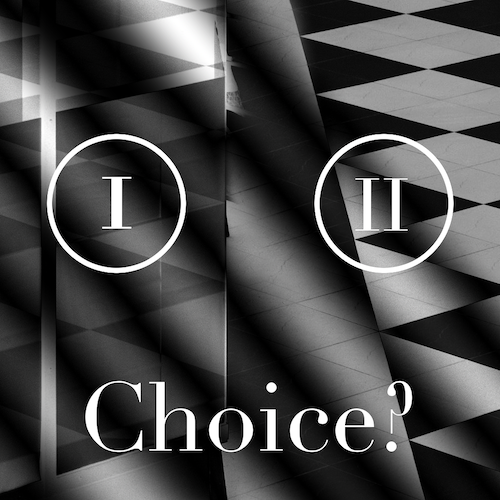Bandersnatch: Black Mirror's Illusion of Choice
The only event that could even remotely usurp the craze that is Bird Box on Netflix is the most audacious Black Mirror feat yet. Bandersnatch is a choose-your-adventure film featured on the streaming platform. There are, apparently, a trillion different combinations you can make the film have, while concluding the quest with a handful of possible endings. Of course this has been a big story: Black Mirror is one of the most acclaimed and sought after shows of this decade. However, the statement that Bandersnatch is making at its core might be the most rewarding thing about it. Its very title references the Lewis Carroll creation that is an amalgamation of various creatures; perhaps this film with many components works similarly?
The root of Bandersnatch is choice. You can watch the film on Netflix: a service that has become lucrative mostly due to the fact that choice is a factor. That cannot be a coincidence when it comes to Black Mirror. Ever since the shoes inception, Black Mirror has aimed to be a modern Twilight Zone (,not just in terms of when it was created, but in reference to how these tales apply to humanity's recent technological obsessions and sicknesses). In fact, "Black Mirror" is a symbol of your own reflection when your various devices have shut off, and you are left with a dark silhouette of you being transfixed by an electronic machine.
To prove the point of Bandersnatch's intentional nature further, it was recently discovered that the game Nohzdyve -- an 8 bit game featured in the film -- can actually be played if you search up Tuckersoft (the imaginary game development company also in the film). The amount of precision Black Mirror has with each and every single one of its cynical, immersive "events" (be it a television episode or a one-off film) is all a part of the original Black Mirror mandate: you can find our cultures in these dark tales.
We get to determine what happens to Stefan on Netflix. The initial draw is that we get to reenact a story the same way our detective novels as children allowed us to. You reach page 88, and you are granted the possibilities to go to either page 3 or page 104. You can flip the page back if you stumble across a dead end (not the correct ending), and you can stomp your way through this paper labyrinth at your own discretion. These are your terms. This is about discovery.
Bandersnatch is not about discovery. Cinema is much more streamlined. You start at one point, and you continue your way towards the end of the run time. Things work more quickly with film, and you are usually just a viewer. Is Bandersnatch any different? Yes, you have choices, and you do have the option to go back (you can always refresh and start over), but you can't pivot right away as soon as you've sensed that you have made a major narrative error.
Instead, you are confined to the set options you have on a streaming service that already knows all of your decisions through algorithms. You feel in charge of someone else's life, but really Netflix is in control of this person as well. Netflix is the wall separating you from this fictitious person. You feel like you can make any decision, because all of this is imaginary, and, again, you have the option to refresh. Yet, many of these choices affect you, too. This is not the film you've made, despite your selections. You are the viewer. This is a film you've selected to view. You take part in it, but you witness the outcomes. You feel badly for decisions you were only very marginally responsible for. You didn’t film these scenes let write the script. You just pushed a button.
That's the power of Black Mirror, and why they have had yet again another grand success with Bandersnatch (especially in theory). This isn’t a parallel dimension as much as it is a dictation of our own reality in an obscure way. Technology allows us to click, tap, and even verbally state our commands, but we only have so many choices. Technology learns from us; habits are made through our predictable decisions (especially, again, since we only have so many options), and algorithms begin to mimic our thought processes. We don’t necessarily live through Bandersnatch every day, but we live through the electronic medium choosing our own fate every day (maybe even at a per-minute basis). Sometimes, Black Mirror is too good of a creation; its prophecies and messages are eerily accurate.
Films Fatale is still brand new, so be sure to click around and allow us to know what articles work for you and which don’t!
Andreas Babiolakis has a Masters degree in Film and Photography Preservation and Collections management from Ryerson University, as well as a Bachelors degree in Cinema Studies from York University. His favourite times of year are the Criterion Collection flash sales and the annual Toronto International Film Festival.

